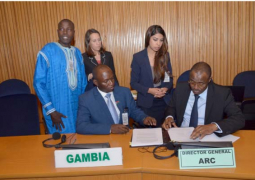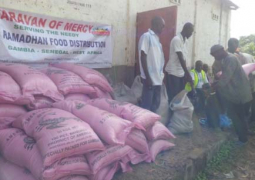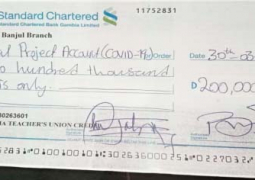Tomorrow Friday 22nd July 2011 will mark exactly seventeen years since President Yahya Jammeh became leader of The Gambia.
When he deposed his predecessor, Sir Dawda Kairaba Jawara, in a bloodless coup on 22 July 1994, few people gave him a chance.
Seventeen years on, he has no doubt weathered the storm and learnt a lot on the job.
However, what we are interested in is what the Jammeh administration has been able to do for the people of this country, and what he has not done, over the past 17 years.
This is because he has sworn to serve the people.
Ever since he took the reins in July 1994, there has been tremendous improvement in the social sector. There are more hospitals and health centres now than ever before; just as there has been an explosion of schools all around the country.
For the first time in the history of this country, Gambians are now able to acquire university education on home soil.
The country has over the years seen its own medical doctors, trained at the University of the
The road network has also improved remarkably. As for telecommunications, there are now four GSM companies operating successfully in The Gambia.
But transportation is still in a difficult state, especially with the absence of the GPTC buses on the road. They need to come back on the road to ease the mounting transport difficulties faced by commuters day after day.
In the same vein, there is a need for more ferries, though we have been told that there are already new ones.
The Government together with the Gambia International Airlines (GIA) and the Gambia Civil Aviation Authorities (GCAA) should work out ways of reducing air fares so that prospective travellers do not have to go to
Peace is the trademark of The Gambia. That is why the Government has to provide the police with a lot of incentives to deal with crimes hitherto unknown to Gambians like armed robbery, murder, drug trafficking, rape, among others that are creeping into our society.
The police should be given more vehicles and more pay to spur them to ensure our collective security.
At the same time, farmers should be made to feel that their produce will be bought at the end of the day, and not otherwise.
This will encourage them to engage more seriously in agricultural production.
At the international level, we need to work hard on our relations with other ECOWAS countries by opening a dialogue with them to thrash out any misunderstandings.
On the human rights front, the issues are numerous, including the fact of people being remanded without trial for an unduly long time, which needs to be addressed. The same applies to the matter of people acquitted and discharged by courts only to be re-arrested.
We also reiterate suggestions that the amendments to the laws which adversely affect the operations of the media and work of journalists in The Gambia, such as the recent amendments to the Criminal Code and the Newspaper Act, should be repealed without delay.
Government should further widen its doors to all the independent press, despite the fact that there have been some recent improvements in our relationship.
Over and above all else, we request that the stalled investigation into the needless and brutal murder of Deyda Hydara on 16 December 2004 be resumed.
“No man or woman really knows what perfect love is until they have been married for quarter of a century”
Anonymous




